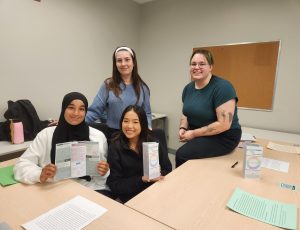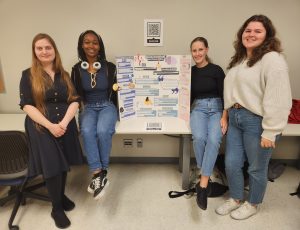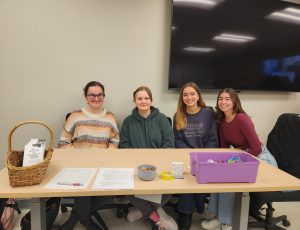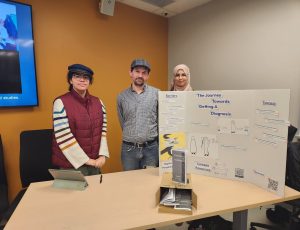As part of Carleton University’s 5th Annual Inclusion Week, students in Professor Tamara Sorenson Duncan’s LING/ALDS 3604 Communication Differences II course organized and hosted an information fair in St. Patrick’s building.
The event, which took place on October 17, 2023, brought students, faculty, and staff together to learn more about neurodiversity, particularly in relation to higher education.
Existing research¹ suggests that universities are working hard to ensure that supports are available for neurodivergent students. However, this research also indicates that these supports may be insufficient or that barriers remain to accessing supports. One such barrier is a misunderstanding of neurodivergence and related stigmatization.
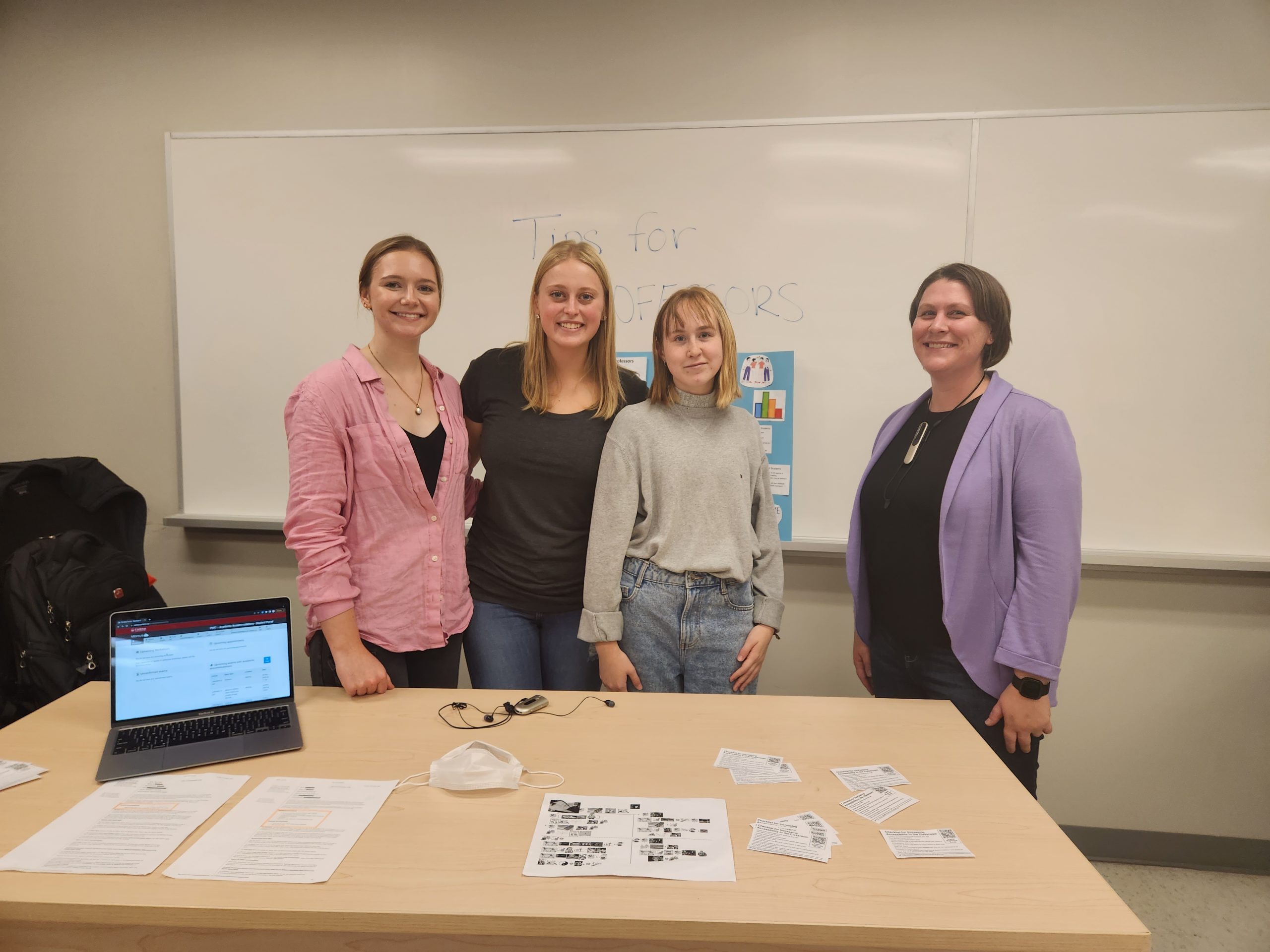
Professor Tamara Sorenson Duncan (right) with a group of students who shared their work on accommodations for neurodivergent students at the information fair on October 17, 2023. In the image, Tamara wears a personal FM system transmitter, which transfers sound waves into invisible light waves. Wireless receivers are worn by individuals who are deaf or hard of hearing.
“The neurodivergent community,” Sorenson Duncan shares, “has been suggested to be the largest minority in the world and yet their voices and experiences are often missing from discussions of equity, diversity and inclusion.”
Accordingly, students in LING/ALDS 3604 hosted an information fair to showcase what they have learned about neurodiversity in the university classroom.
“Students took the lead on all aspects of this event. They brainstormed as a class about what topics they wanted to cover and why. They then divided up the ideas between the groups to ensure that a wide range of topics were covered.”
Tamara Sorenson Duncan
Drawn from a combination of research literature and the lived experiences of neurodivergent students, the information booths included helpful tips and tricks for instructors, peers, and neurodivergent individuals.
The subject matter that the students shared at the event included myth debunking, the journey towards diagnosis, neurodiversity and second-language acquisition, self-regulation and resources for personal support, self-acceptance, and accommodations for neurodivergent students. One of the booths hosted an interactive Jeopardy game for visitors to test their knowledge.
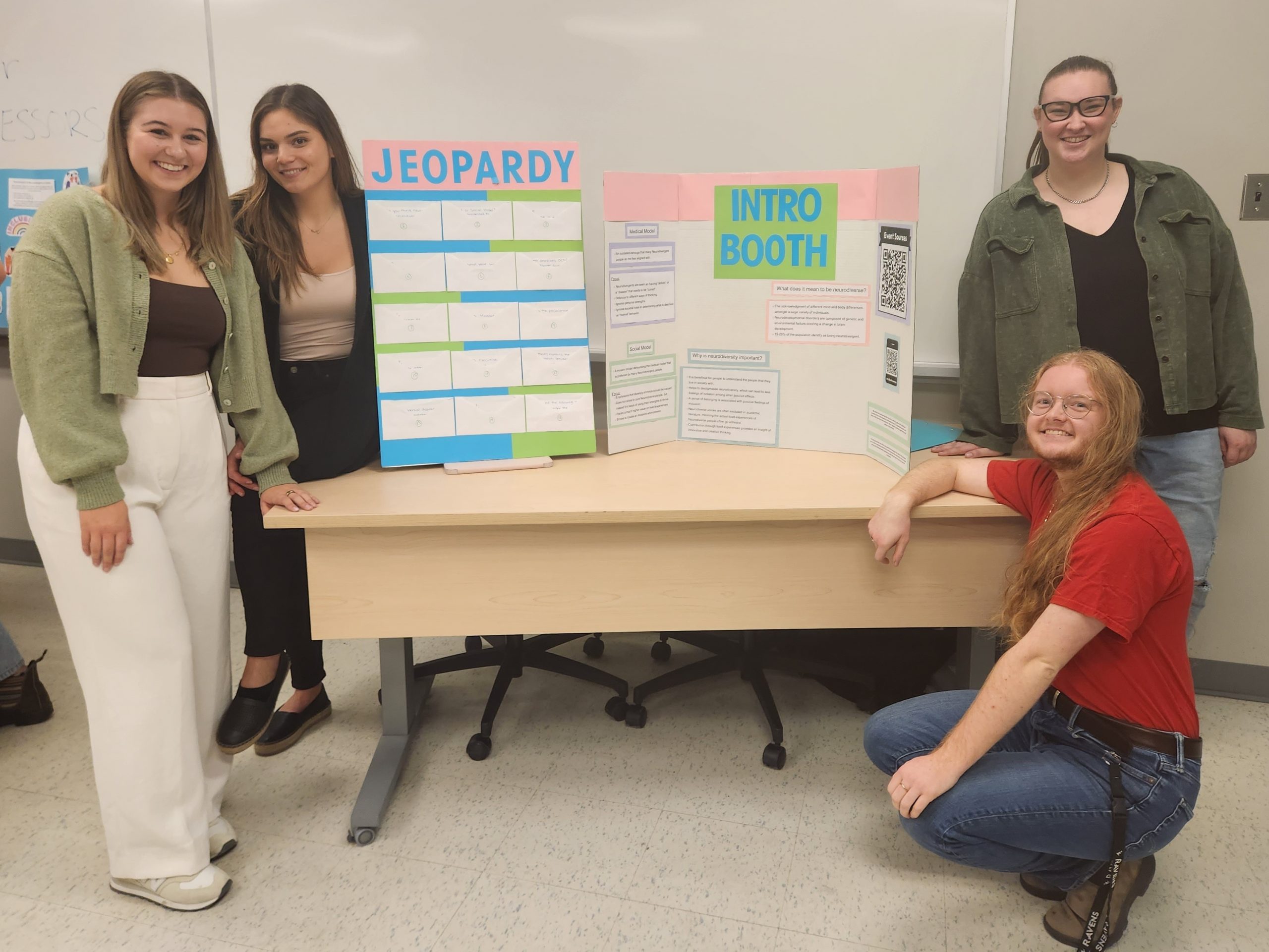
Introduction booth featuring students who hosted a game of Jeopardy
Michael Rodgers, Director of the School of Linguistics and Language Studies, attended the event and noted that “the enthusiasm the students displayed at the event was palpable.”
“I’m very impressed with the academic rigor that was on display at the information fair. These are knowledgeable students, and they helped create a lively atmosphere that was teeming with people.”
Michael Rodgers
Congratulations to all of the students in LING/ALDS 3604 for putting together this informative event, and a special thank you to the students who volunteered for the organizing committee!
If you attended the event on October 17, please consider leaving some feedback by following this link.
¹ E.g., Clouder, L., Karakus, M., Cinotti, A., Ferreyra, M. V., Fierros, G. A., & Rojo, P. (2020). Neurodiversity in higher education: a narrative synthesis. Higher Education, 80(4), 757-778.
